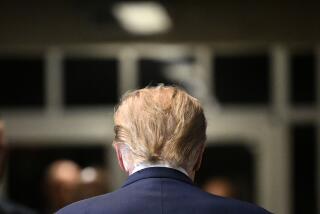An ecumenical omelet
In deciding to deliver a major address on “faith in America,” Mitt Romney had several options. He could endorse John F. Kennedy’s insistence in 1960 that “I believe in an America where the separation of church and state is absolute.” Or he could embrace the tradition that America is “one nation under God” but not specifically a Christian nation. Or he could minimize the importance of controversial Mormon beliefs by noting that his religion was a matter of family tradition. Or he could try to refute the suggestion by some evangelical Christians that, as a Mormon, he isn’t a real follower of Jesus Christ.
In the end, Romney’s speech at the George H.W. Bush Presidential Library in Texas included all of these options, giving a new connotation to St. Paul’s declaration that “I am made all things to all men.” The former Massachusetts governor served up an ecumenical omelet with something for everyone -- well, almost everyone. Barry Lynn of Americans United for Separation of Church and State complained that Romney “doesn’t seem to recognize that many Americans are nonbelievers.” Or perhaps Romney is familiar with a Gallup Poll suggesting that more than half of Americans wouldn’t vote for an atheist for president.
Atheism aside, almost every position in the debate over religion and public life got Romney’s endorsement. Echoing Kennedy, Romney said, “I do not define my candidacy by my religion.” But he also insisted that “we are a nation ‘under God,’ ” a view not limited to Christians. Elsewhere, however, Romney felt compelled to declare, “I believe that Jesus Christ is the son of God and the savior of mankind.” This was presumably a rejoinder to former Arkansas governor and fellow GOP candidate Mike Huckabee, a Southern Baptist minister who declined to say in a television interview whether he considered Romney a Christian.
Romney offered not one but two explanations for his religious affiliation: “I believe in my Mormon faith” and “my faith is the faith of my fathers” (a comment likely to appeal to voters who think of their own religion as an inheritance). He also complimented the faith of other people’s fathers, praising “the profound ceremony of the Catholic Mass, the approachability of God in the prayers of the evangelicals, the tenderness of spirit among the Pentecostals, the confident independence of the Lutherans, the ancient traditions of the Jews, unchanged through the ages, and the commitment to frequent prayer of the Muslims.”
These contortions reflect a politician’s interest in covering all the bases. But they also are a commentary on the influence in the Republican Party of hyper-politicized evangelicals, some of whom -- as Romney has discovered -- don’t share his and the Constitution’s view that there should be no “religious test” for holding public office.
More to Read
Get the L.A. Times Politics newsletter
Deeply reported insights into legislation, politics and policy from Sacramento, Washington and beyond. In your inbox three times per week.
You may occasionally receive promotional content from the Los Angeles Times.






